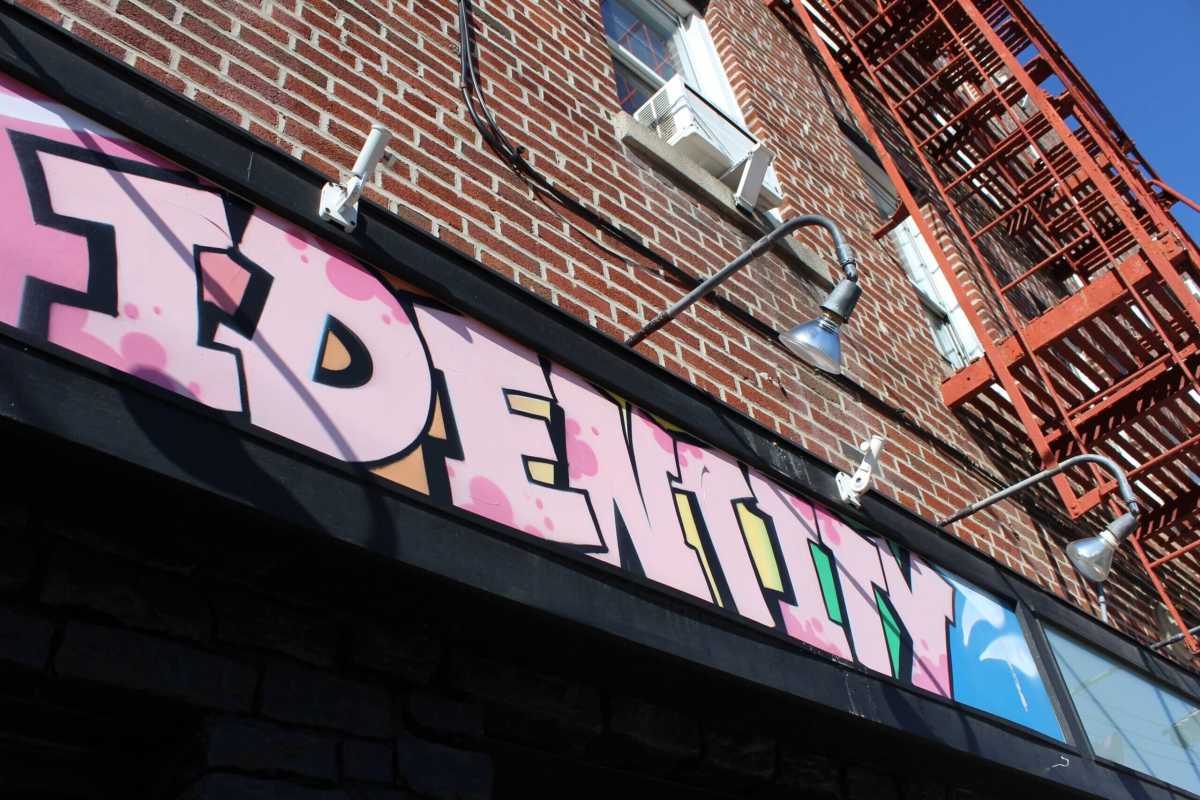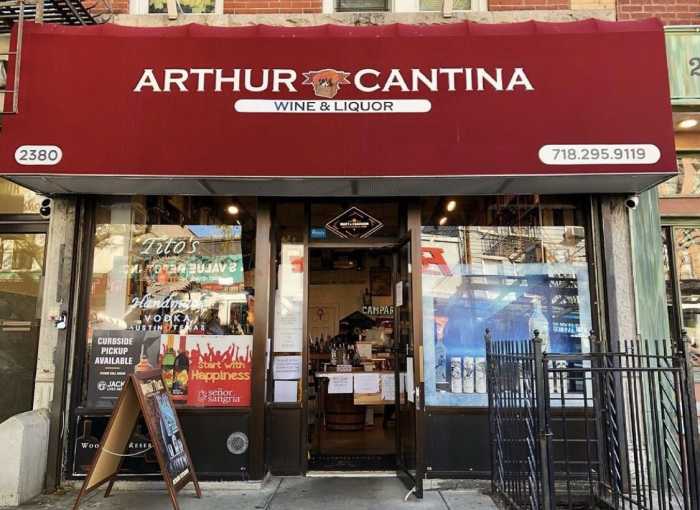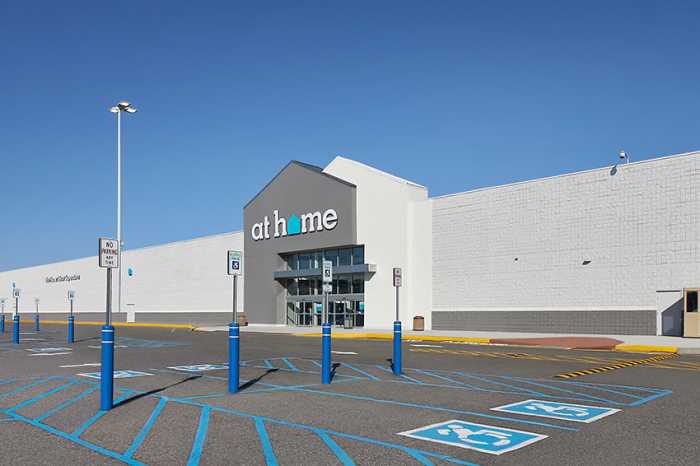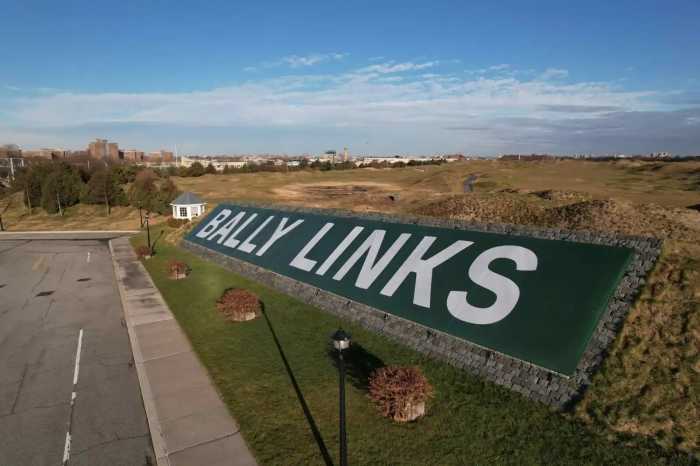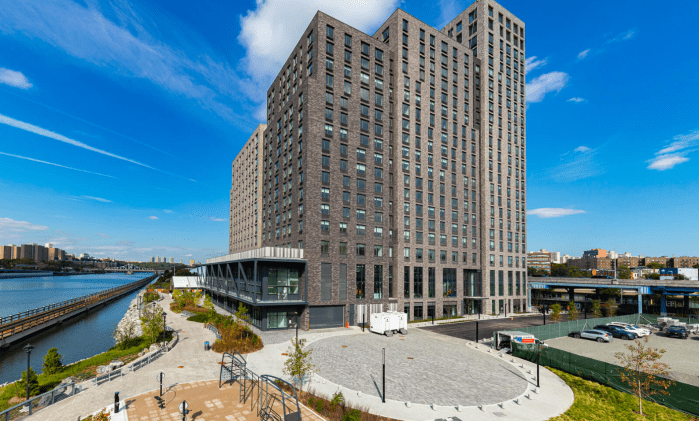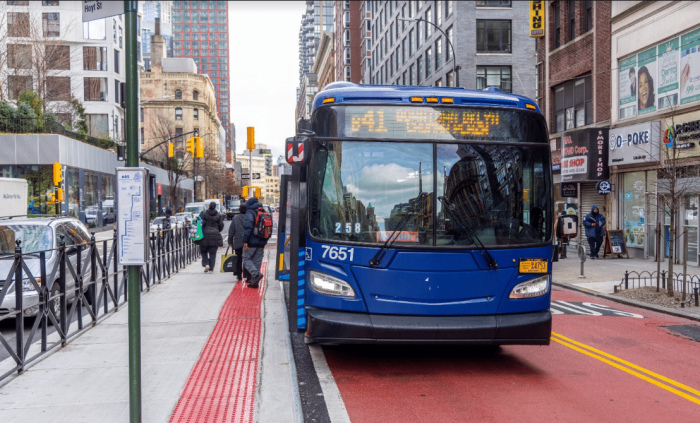Every Friday evening at the Bronx’s only gay bar, a queen of the night held court.
Specializing in Whitney Houston, Kelly KaBoom also keeps Beyoncé and Ariana Grande on heavy rotation. As Identity’s resident drag performer, she danced and lip synced in 4-inch heels, shimmering costumes and wigs — “the bigger, the better.” Kelly KaBoom, also known as JyQuan Reede outside the club, did medleys, took requests and always staged “a reveal,” a dramatic costume change mid-set.
“The crowd that comes in — they’re recording, they’re screaming your name,” says Reede. “I love entertaining people; seeing people smile and have a good time.”
But in mid-February, Reede learned there would be no more “Lit Fridays with Kelly Kaboom” at Identity in Woodlawn Heights. The bar closed permanently, leaving the Bronx with no LGBTQ nightlife space — again.
“We had so many LGBTQ places in New York, but most of them got shut down,” says Reede, a North Bronx resident who’s been doing drag for 20 years. “For us to have one that was local in the Bronx, it was great. When things start to change up, it’s just like, ‘What is going on?’”
Gay bars like Identity have been in decline for a decade, with LGBTQ businesses across the country steadily decreasing. New York City’s queer nightlife scene lives on, if only a little thinner than it once was, but the wealth is not spread equally across the boroughs. Manhattan has the bulk of the city’s 60-some gay bars and clubs, with a fair amount in Brooklyn and a few in Queens. Staten Island has none, which doesn’t surprise given its small, historically conservative and suburban population. And now, the same can be said for the Bronx.
Though overwhelmingly liberal and urban, the Bronx hasn’t been able to sustain a gay bar for a significant length of time for two decades.
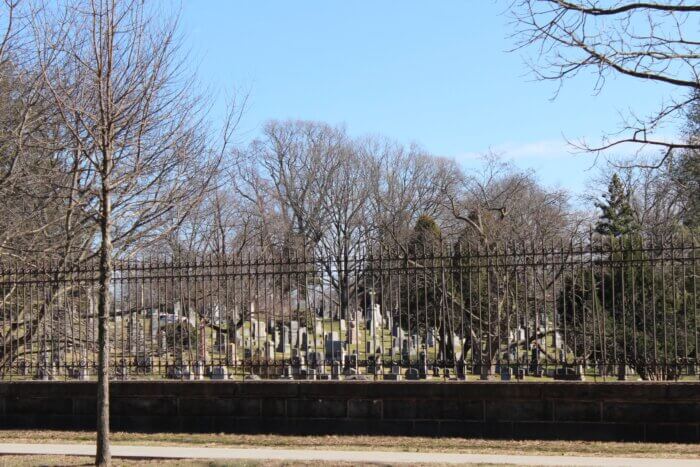
Since 2004, the borough has acquired and spat out at least four gay bars, holding just one or two at a time. The last was Identity, owned by Irish restaurateur Aidan Loughran, who said in September that the city’s abundance worsened business.
“It’s just difficult when you’re up against Manhattan,” said Loughran. “It is a struggle for us here at Identity, because I think most of the Bronx crowd would prefer to go to the city.”
Before Loughran, there was Audrey de Jesus. In 2006, the Hunts Point businesswoman founded a Bronx gay bar called Nina’s Lounge in the Country Club section. It died two years later. She tried again, then again, with the same result. Her fourth attempt was up-ended by the onset of the COVID-19 pandemic in 2020.
De Jesus remembers one other gay bar in the borough during her decade of ventures: Victor and Victoria, whose lifespan reached a comparatively impressive four years, according to de Jesus.
“We need something, because the Bronx is underserved,” says de Jesus, who recently had a telling interaction with a lesbian couple on her block. “They were like, ‘Why do we always have to go to Manhattan to hang out and have a drink? Why can’t there be something like that in the Bronx? And I’m like, ‘Yeah, I know, I’m working on it,’” she says.
De Jesus, a truant officer who regularly meets kids struggling with LGBTQ identity, used to hold dry, curfewed “teen nights” at her bars in the Bronx. She believes some Bronxites are less accepting of different identities, and it’s important for young people to have places to go where they feel safe.
“I was stereotyped maybe a couple of times, but it wasn’t so in your face like it is now,” says de Jesus, a lesbian. “It’s like we’re taking a step backwards because of the ignorance and the violence now. You know, people are getting killed for who they are.”
De Jesus’ Bronx bars closed because of difficulties with neighbors, landlords and liquor licensing. Still, she hasn’t given up on her dream venue: an inclusive, event-driven environment with burlesque shows and space for people of all identities.
But now she’s looking in Harlem, instead.
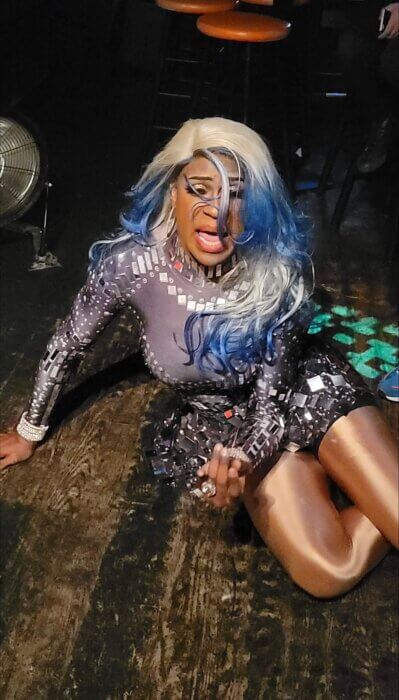
“I just — I want to find the right place,” she says. “That way, I don’t have to move.”
When Identity opened in June 2021, Bronx native James Hammond hung out there twice a week. That summer, he organized the Second Annual Pride Project at the bar, featuring Kelly KaBoom and another drag performer named Misty Mountains. As much fun as Hammond had there, he’s not surprised Identity went under.
Hammond and de Jesus both noted the bar’s location as a handicap. On East 233rd Street, Identity’s small storefront lies between residential buildings and a flooring company, just across the street from a sprawling landscape of tombstones — it’s on the northern edge of Woodlawn Cemetery, an hour-long trek by public transit from areas like the South Bronx.
In these unlikely surroundings, Kelly KaBoom performed every Friday from 11 p.m. to 2 a.m., bathed in colored lights. The place vibrated with music. Neighbors accustomed to a quiet block complained, making repeated 311 calls about noise and unruly patrons.
Hammond says as time went by, prices increased, a cover charge appeared and the establishment lost touch with the community in a borough whose residents are statistically more impoverished than those of the other boroughs. And LGBTQ people are more likely to be low-income than their non-LGBTQ counterparts, according to Legal Services NYC.
“The Bronx is a really hard place to do business,” says Hammond. “That’s why we keep losing these things. I think that a proper LGBTQ space won’t be established until someone who actually lives in the Bronx, and understands the culture of not just the LGBTQ life, but also specifically the culture in the Bronx, builds an establishment.”
The Bronx wasn’t always the queer nightlife desert it is today.
Charles Rice-González, co-founder of the Bronx Academy of Arts and Dance (BAAD!), recalls local community-building in the ‘90s. While working as an operator at the Gay and Lesbian Switchboard, a queer informational hotline, he discovered and joined a seminal group called Gay Men of the Bronx. “I loved to be in a neighborhood with all my gay friends,” says Rice-González, recalling group trips to places like the Bronx Zoo. “The specter of AIDS was there, so we created a space for people to come together.”
Rice-González frequented several Bronx gay bars over that decade. He remembers bouncing from spot to spot, meeting strangers and befriending other queer people on nights that ended at diners as the sun rose. He says the reason gay bars aren’t sticking in the Bronx may not be specific to the borough. The Bronx is stereotyped as a homophobic place, but Rice-González says in the 14 years he flew a pride flag outside BAAD!’s previous location in Hunts Point, he experienced only two homophobic incidents.
“The same isolation doesn’t exist,” says Rice-González. “I mean, one of the reasons why people would go to bars was to meet people, and now you can put an application on your phone to meet people in your neighborhood.”
Reede, the performer at Identity, says finding a gig as a drag queen in New York is hard, especially in Manhattan. Before “Lit Fridays,” Kelly KaBoom had been asleep for five years. Reede says he’ll always be grateful for the opportunity to bring her back, for a year and a half as “the Queen of Identity,” the Bronx’s last gay bar.
“It makes me happy that now I’m part of a little piece of history — that my show was out there,” says Reede. “But I miss it. I miss it a lot.”
For more coverage, follow us on Twitter, Facebook and Instagram @bronxtimes

